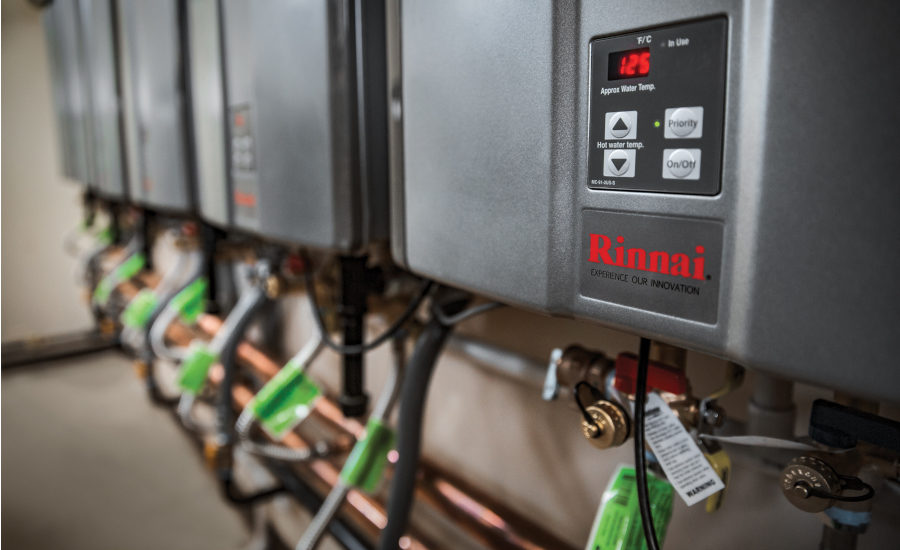Advantages of Using a Commercial Water Heater
Consider getting a commercial water heater when you plan to install a new water heater in your commercial establishment. These units are much safer than fuel-fired units and save space. They’re also less expensive to install than their fuel-fired counterparts. Keep reading to learn more about using a commercial water heater. Once you’ve decided to purchase a commercial unit, you’ll be able to enjoy all its benefits.
Electric water heaters are safer than fuel-fired units.
A commercial water heater can be classified as either gas or electric-fired, but some key differences are. Gas-fired units have higher energy inputs, safer to use, but electric water heaters don’t. The main difference between these two types of water heaters is their efficiency. High-efficiency units are more energy-efficient than standard units. They can heat water up to 134 degrees Fahrenheit at 82 percent efficiency.
Gas and electricity-fired water heaters are generally more expensive, and electric systems tend to be more energy-efficient than their fuel-fired counterparts. Gas-fired water heaters can be installed on walls or in other locations, but they may need more space for safety reasons. Moreover, electric systems are more flexible than natural gas units. Since electricity is a ubiquitous resource in buildings, it makes sense to install an electric system in a place where you have electricity.
Electric water heaters are more energy-efficient.
Since 1992, the DOE has enforced minimum standards for commercial water heaters, followed by commercial water heaters in pleasanton ca. The new standards are based on the ASHRAE 90.1-1999 standard, which specifies maximum standby loss and minimum thermal efficiency levels. However, these more recent standards may not always meet the requirements of your commercial building. Therefore, it is essential to shop for a commercial water heater with these standards in mind. By purchasing a commercial water heater, you will be helping the environment and saving money.
Compared to traditional water heaters, high-efficiency water heaters can save up to 50% energy. However, installers of these high-efficiency units must consider specific calibration requirements. For example, the most common mistake made by non-licensed installers is not installing air intake vents correctly. Both intake and exhaust vents should be of equal length. If the intake vent is too long, the unit will not pull in the necessary amount of air for combustion.
Electric water heaters save space.
The energy-efficient design of commercial water heaters can save significant business amounts of money on their heating bills. These water heaters are much more energy-efficient than traditional storage tank models, and they can help reduce energy costs by up to eighty percent. These commercial water heaters can prevent seventeen billion pounds of carbon dioxide emissions each year by reducing energy use. They can also save a business space in the process.
These newer commercial water heaters save space and energy by eliminating the need for a bulky storage tank. They also require less space than traditional storage tank water heaters, which means you can use that space for another utility room or other amenities. After all, hot water is indispensable to commercial kitchens and restaurants. But the space required for a large storage tank makes it impossible to install one in a retail setting. Luckily, tankless models are becoming more popular.
Electric water heaters are less expensive to install
Commercial water heaters are less expensive to install than their residential counterparts. The most obvious reason is the cost. A new water heater can cost anywhere from $400 to more than $12,000. Another reason is the additional work required to install it, which can add another $300 to $600 to the total cost of the water heater. Aside from relocating the water heater, other factors can affect the installation cost. For example, converting from electric to gas requires installing new gas lines. Depending on the type of commercial water heater, the electrician may charge an extra $100 to $200 per square foot. Finally, there are carpentry costs associated with installing a new water heater. These costs can add up quickly, so it is always worth asking for a quote.
Electric and gas water heaters require less maintenance and are often the least expensive to purchase and install. While gas is less expensive than electricity, both are less expensive in the long run and are generally less costly to buy and install. In rural areas, electricity may be cheaper to install and maintain since it is more readily available. In addition, gas is not available everywhere, so it may be more affordable to purchase and install a new water heater using electricity rather than another fuel.
Electric water heaters are more reliable.
An excellent commercial water heater has multiple benefits:
- It is much more reliable.
- They are more energy-efficient.
- Many commercial water heaters are now made with more advanced technology.
Some even have the capability of remote monitoring. These types of heaters are a wise investment for any business. However, they do cost more. Luckily, the benefits of a commercial water heater far outweigh the costs.
Commercial water heaters are also more durable. Larger water heaters frequently fire at high BTU. This higher heat wears down components and increases the likelihood of commercial water heater failure sooner. Thankfully, commercial water heaters are made with higher-quality pieces that will last longer. This means that your business will enjoy hot water for a long time without spending extra money on repairs. Moreover, you can choose from point-of-use models and large-volume solutions.
Electric water heaters save money.
The Department of Energy has proposed ENERGY STAR standards for commercial water heaters. This could mean savings of up to $890 million in annual energy costs and avoiding the emission of 17 billion pounds of greenhouse gases. However, even if you don’t need to install a new water heater, you can do a few simple things to reduce hot water usage and save money. Here are some of the most common ways to do this.
Storage water heaters are the most common type of water heater in the U.S. today. They range from 20 to 80 gallons and are fuelled by electricity, propane, and natural gas. These types save energy and operate much cheaper than their electric counterparts. Storage water heaters work by heating water in an insulated tank. It is pumped out of the top when hot water is needed while cold water flows down the bottom. As a result, hot water is always available.
















